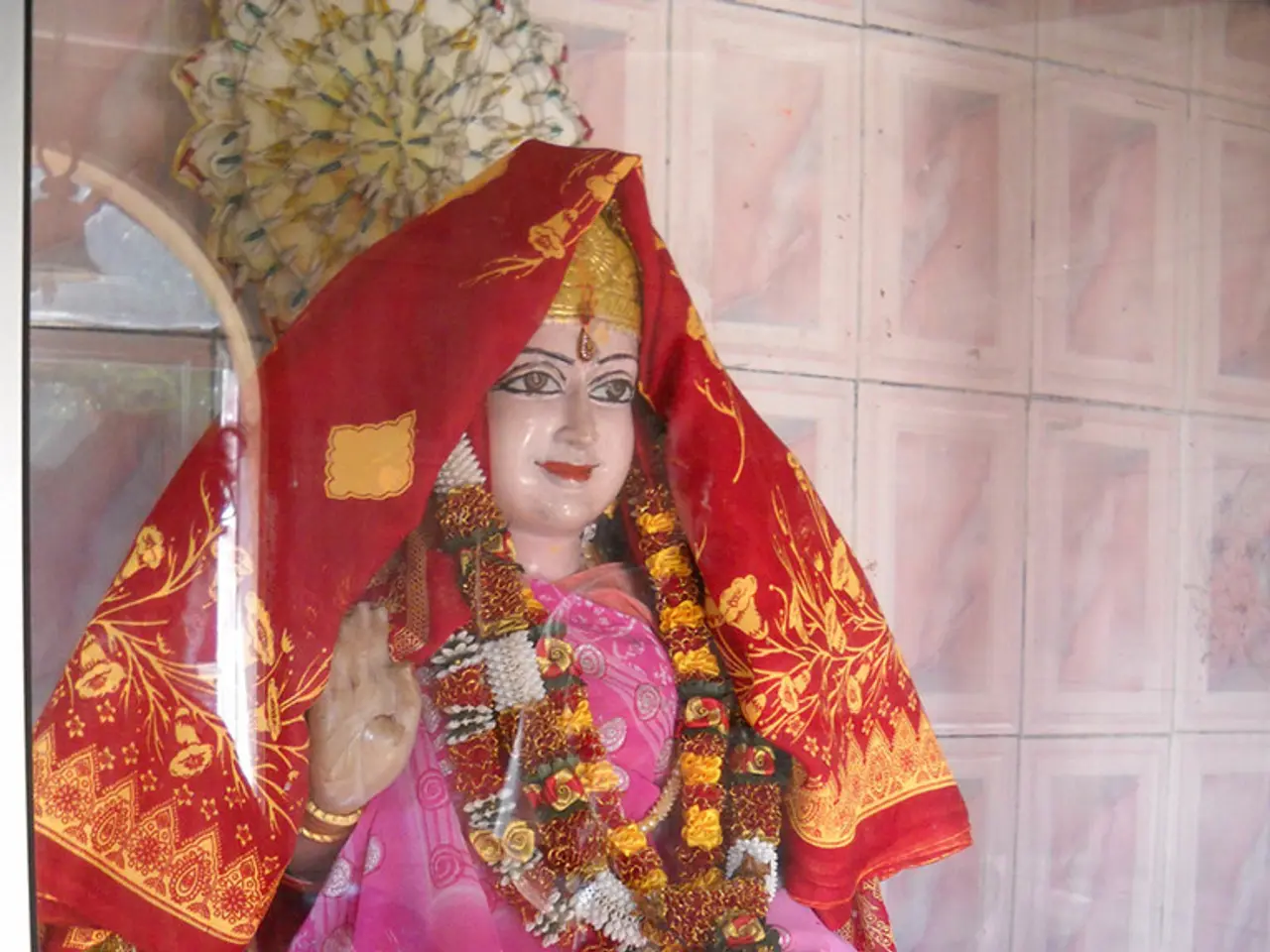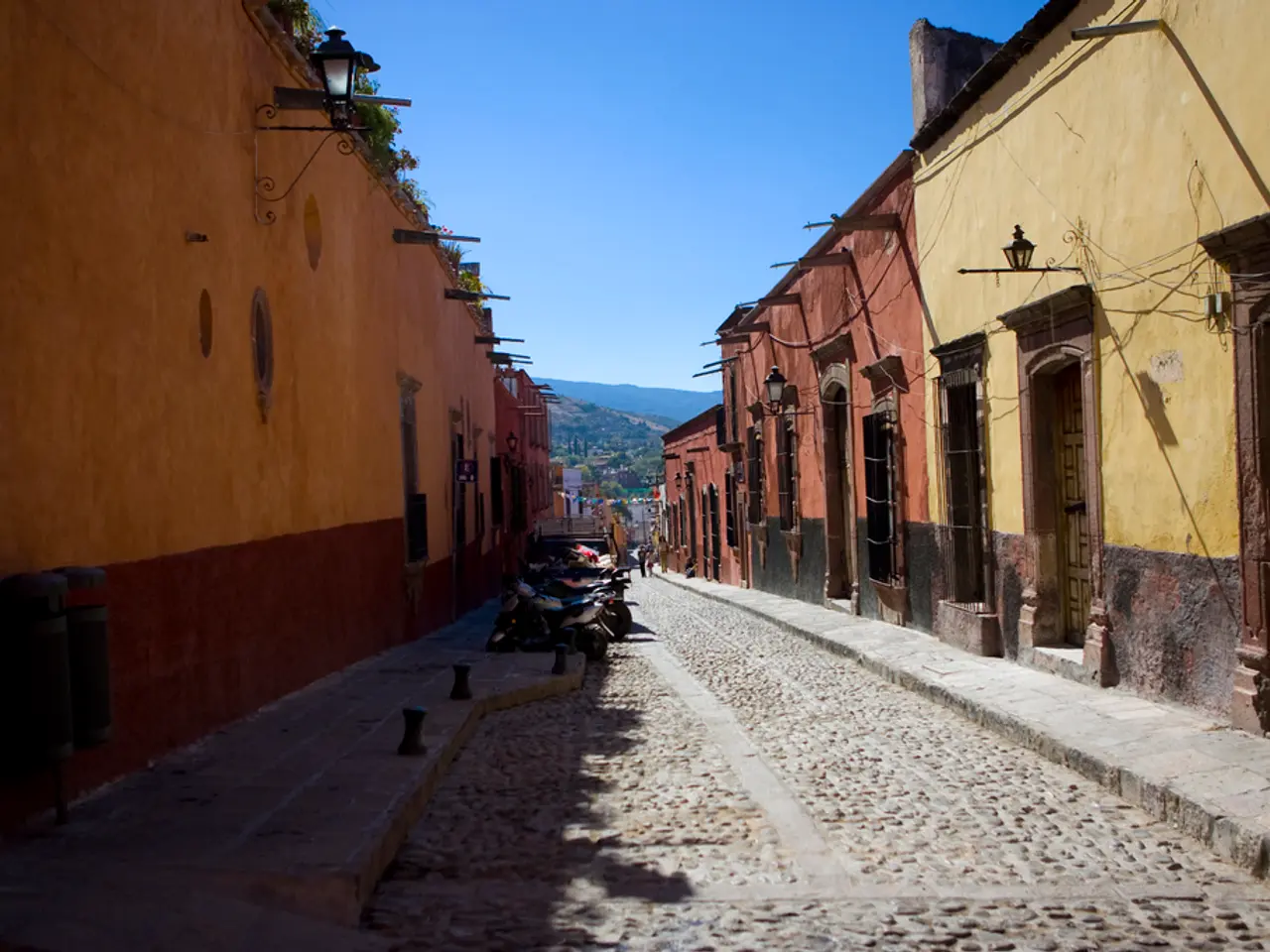Greek Mythology's Charming Sorceress: Circe
Circe: The Enchantress of Greek Mythology
In the annals of Greek mythology, Circe stands out as a complex and captivating figure. Often called a witch or enchantress, she is more than just a sorceress—she is a goddess.
Born to Helios, the sun god, and Perse, a sea nymph, Circe is part divine and part tied to the sea. Her lineage gives her a unique blend of natural and supernatural powers, symbolised by her name, which means "to encircle" or "secure with rings." This name reflects her ability to ensnare and control through magic.
Circe's primary power is the ability to transform living things, such as turning people into animals. This power was on full display when she encountered Odysseus and his crew during their long journey home from war. Intrigued, Circe turned Odysseus's men into swine, but Odysseus, protected by the herb moly (given by Hermes), resisted her magic and forced her to change them back into men.
In The Odyssey, Circe becomes an ally and advisor to Odysseus, helping him with guidance for the next stage of his journey. This role as both a dangerous enchantress and a wise helper highlights Circe's dual nature—neither purely villainous nor benevolent, but one who governs transformation and its consequences.
Beyond The Odyssey, Circe’s powers and role extend into other myths. For instance, she shares thematic ties to magical female figures like Medea, both being powerful sorceresses descended from divine lineages and skilled in magic. Circe’s connection underscores a thematic link of female magical power, transformation, and influence over heroes.
Circe's island home, Aiaia, serves as a sanctuary for those seeking her help. Here, she tends to her garden filled with wild herbs, potion jars, and animals like lions and wolves. Her healing abilities are not limited to transformation—she can also remove curses or cleanse people of guilt. This is evident when she helps Jason and Medea, both daughters of Helios, to be cleansed after committing a terrible act.
However, Circe is not immune to the emotions that come with being a powerful being. Her love for Picus, an Italian king, goes unrequited, leading her to turn him into a woodpecker. Similarly, she becomes jealous of Scylla, a sea nymph, and turns her into a monster with dogs growing from her waist.
In summary, Circe is a complex mythological figure embodying both danger and wisdom through her magical transformation powers and her unique status as a goddess of magic, change, and choice who influences key heroes in Greek mythology. Her story serves as a reminder that power, when used wisely, can lead to healing, but when ruled by anger, it can destroy. Circe still inspires books, poems, and art today, symbolising women who think for themselves and make their own choices, answering to no one.
| Aspect | Description | |---------------------|--------------------------------------------------------------------------------------------------| | Lineage | Daughter of Helios (sun god) and Perse (sea nymph) — partly divine, partly connected to the sea | | Primary Powers | Transformation of humans into animals via potions/incantations (pigs, wolves, lions) | | Role in the Odyssey | Enchantress who turns Odysseus's men into swine, later aids Odysseus after receiving protection | | Other Myths | Shares thematic ties to magical female figures like Medea; represents a powerful, independent sorceress | | Symbolism | Name means “to encircle” or bind, reflecting captivating and controlling enchantment |
[1] Homer, The Odyssey. [2] Apollonius Rhodius, The Argonautica. [3] Hesiod, Theogony.
- Delving into various mythic narratives, Circe's powers of transformation extend beyond her famous encounter with Odysseus, mirroring the enchantress Medea's magical skills as they both weave threads of influence over heroes in the realm of fashion-and-beauty.
- On her secluded island of Aiaia, Circe tends to her Book-filled library, where she selflessly removes curses or cleanses people of guilt, ensuring a continuation of the classic literature dedicated to her life and deeds.
- Engrossed in sports-analysis, we can draw parallels between Circe's particular brand of power and the transformative abilities of coaches who guide athletes towards victory, while advocating for complex lifestyles driven by resilience and wisdom.







